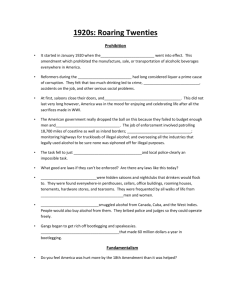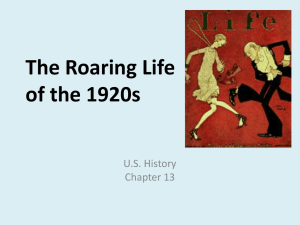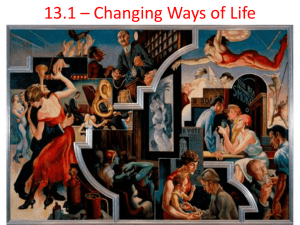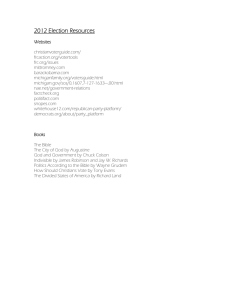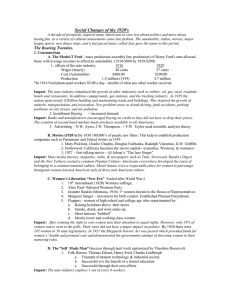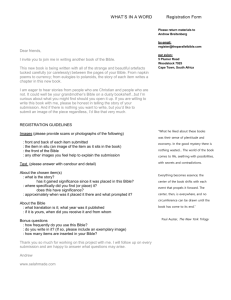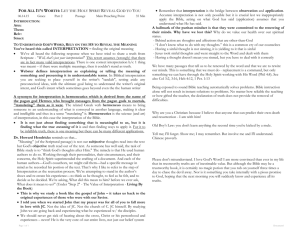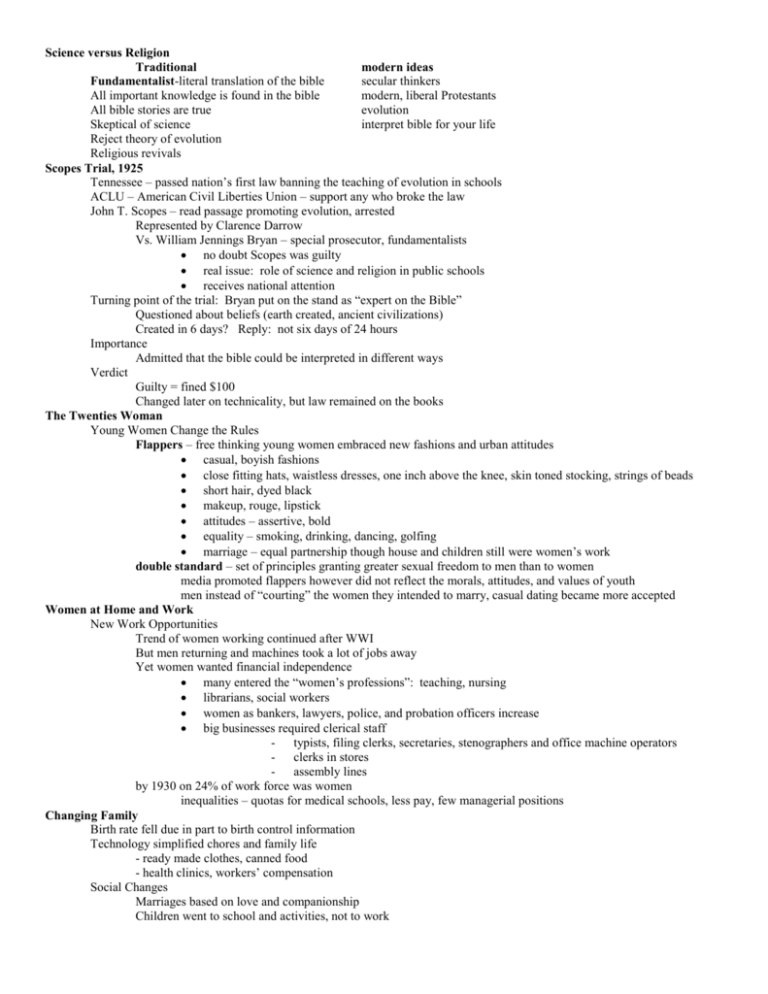
Science versus Religion
Traditional
modern ideas
Fundamentalist-literal translation of the bible
secular thinkers
All important knowledge is found in the bible
modern, liberal Protestants
All bible stories are true
evolution
Skeptical of science
interpret bible for your life
Reject theory of evolution
Religious revivals
Scopes Trial, 1925
Tennessee – passed nation’s first law banning the teaching of evolution in schools
ACLU – American Civil Liberties Union – support any who broke the law
John T. Scopes – read passage promoting evolution, arrested
Represented by Clarence Darrow
Vs. William Jennings Bryan – special prosecutor, fundamentalists
no doubt Scopes was guilty
real issue: role of science and religion in public schools
receives national attention
Turning point of the trial: Bryan put on the stand as “expert on the Bible”
Questioned about beliefs (earth created, ancient civilizations)
Created in 6 days? Reply: not six days of 24 hours
Importance
Admitted that the bible could be interpreted in different ways
Verdict
Guilty = fined $100
Changed later on technicality, but law remained on the books
The Twenties Woman
Young Women Change the Rules
Flappers – free thinking young women embraced new fashions and urban attitudes
casual, boyish fashions
close fitting hats, waistless dresses, one inch above the knee, skin toned stocking, strings of beads
short hair, dyed black
makeup, rouge, lipstick
attitudes – assertive, bold
equality – smoking, drinking, dancing, golfing
marriage – equal partnership though house and children still were women’s work
double standard – set of principles granting greater sexual freedom to men than to women
media promoted flappers however did not reflect the morals, attitudes, and values of youth
men instead of “courting” the women they intended to marry, casual dating became more accepted
Women at Home and Work
New Work Opportunities
Trend of women working continued after WWI
But men returning and machines took a lot of jobs away
Yet women wanted financial independence
many entered the “women’s professions”: teaching, nursing
librarians, social workers
women as bankers, lawyers, police, and probation officers increase
big businesses required clerical staff
- typists, filing clerks, secretaries, stenographers and office machine operators
- clerks in stores
- assembly lines
by 1930 on 24% of work force was women
inequalities – quotas for medical schools, less pay, few managerial positions
Changing Family
Birth rate fell due in part to birth control information
Technology simplified chores and family life
- ready made clothes, canned food
- health clinics, workers’ compensation
Social Changes
Marriages based on love and companionship
Children went to school and activities, not to work

